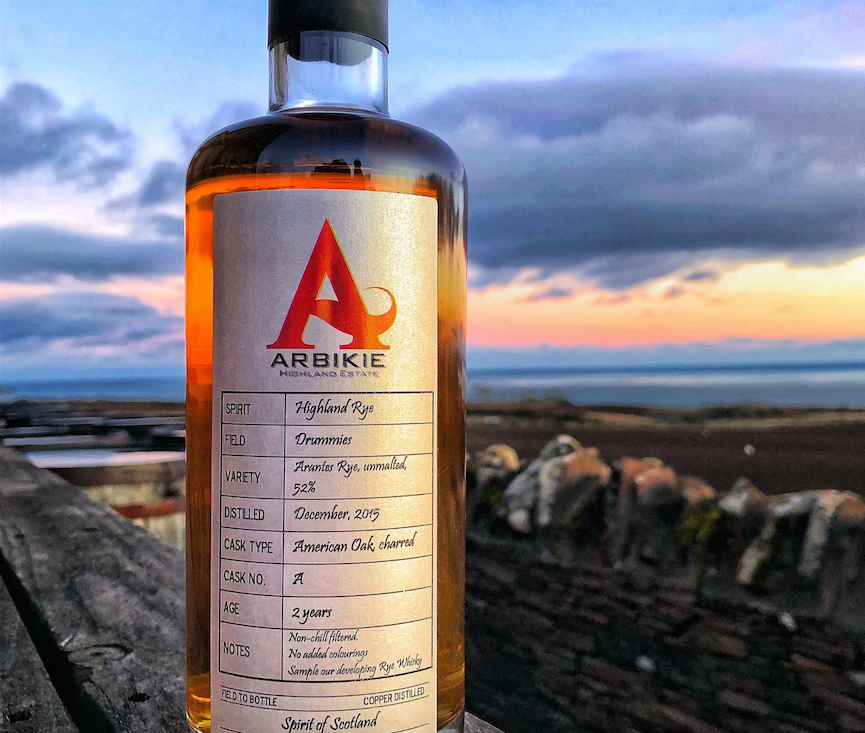
Arbikie goes against the grain with Scottish rye whisky
Scotch is one of the UK’s most formidable trademarks, with a global export presence worth £1.8 billion in the first half of 2017, according to HMRC.
Scottish potato farmers and now distillers, Arbikie, have been exploring other avenues for their first brown spirit release however, by turning away from traditional barley made Scotch in favour of a rye whisky.
Harpers caught up with Arbikie Highland Estate's commercial manager Adam Hunter yesterday to find out more about the experimental Harvest Rye, slated to be the first of its kind produced in Scotland in 100 years.
While a traditional single malt Scotch is due to be released in 2030, for now they are concentrating on this “new” category, which has traditionally been driven by overseas distillers in the US and Canada.
Hunter says the reason Scottish rye whisky has been non-existent in recent decades is because, simply, “Rye isn’t generally grown in Scotland as a commercial crop. Rye was used in Arbikie to clean out the soil, which is especially important on a potato farm. Much of the Irish Potato Famine was caused by the soil not being rotated properly. If you keep planting on the same site, [with a lack of genetic variability], potatoes will stop growing.”
Their scale and experience as one of the nation’s largest potato suppliers to retailers such as Tesco forms a major part of Arbikie Estate’s “field to bottle” mission statement and has enabled them to claim to be the only Scottish distiller to harvest and produce spirits from scratch on site; (plans are in the works to introduce individual plot as well as batch numbers on future bottlings for maximum traceability).
From 2000 acres of Angus land producing King Edward potatoes, the farm started producing spirits in 2014 with Arbikie Potato Vodka and Kirsty’s Gin being among the first NPDs.
Following a initial batch for charity in 2017, the Harvest Rye is scheduled for general release later this year when it meets the three-year threshold outlined by The Scotch Whisky Regulations 2009, to be sold as a ‘Scottish Rye Whisky’.
Another rye-based product made using typical American methods, – a nod to the US’s rye whisky heritage – is also due for release this year.
However, this will never qualify as a “whisky” in the UK because of the American techniques used in production.
“The Scotch Whisky Association (SWA) is very strict,” notes Hunter, on the classification of new products. “But that’s how you premiumise the industry. If you see ‘12 yrs old’ on the bottle, you know what’s how old it is. It’s why rum has never really been premiumised - because regulations aren’t there. I have great respect for what the SWA has done.”
Keywords:
- US
- Scotch
- SWA
- whisky
- HMRC
- Scotch Whisky
- scottish
- rye
- arbikie
- potato
- rye whisky
- scottish rye
- harvest rye
- arbikie potato
- scottish rye whisky




